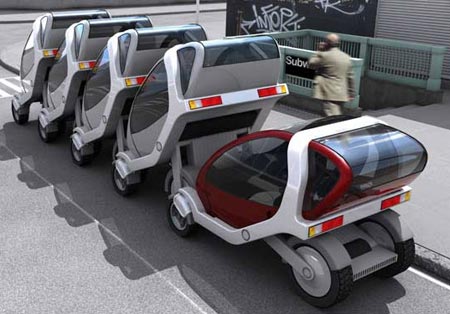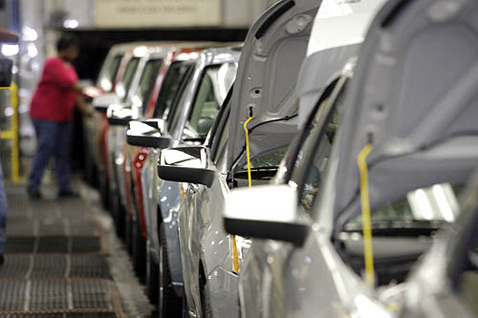
The Independent Investor: Big Three Should Become the Big One
 |
After all, a lot of labor money has been funneled into various political campaigns throughout the years. Detroit auto workers also vote and who wants 3 million unemployed voters casting their ballots against you in two years? Even the president-elect isn't going to buck that kind of voting power.
Yes, I know I'm cynical and, yes, I've heard all the arguments about why the auto industry is critical to our nation's manufacturing capacity. Other proponents of federal assistance argue that the last time the government bailed out one of the auto companies it turned out to be a profitable investment.
Back in 1979, Chrysler was the nation's 10th largest company and on the verge of bankruptcy. It had bet the farm on producing large gas-guzzlers only to hit a brick wall when OPEC jacked up oil prices. Americans shunned their products (does this sound familiar?) and both management and union leaders begged the government for $1.2 billion in subsidized loans.
That was big money in those days. Under the charismatic leadership of Lee Iacocca, Chrysler used the money to re-create itself with the K-line of smaller vehicles like the Dodge Aries and the minivan as well as the forerunner to the popular SUV. By the mid-'80s, not only had the company repaid the loan but the government made a profit.
 Time to squeeze the automakers |
Yet riddle me this Detroit. Why are you, the auto industry, now exactly where you were almost 30 years ago? Why do we think that simply throwing money at the same old managements and business models will do any good at all?
If it were up to me, I would have a few of my own demands. How about for starters we fire top management of all three and then merge the companies into one. Let's call it GFC. Sure that would mean redundancies, painful job cuts especially in management, but it would also produce economies of scale, modernization and, hopefully, an industry that could not only survive but thrive in today's competitive marketplace. It might even improve our manufacturing capacity.
Did you know that there are a number of healthy auto manufactures in this country who are doing quite nicely in this environment? We could pick off some of their top managers to run the new GFC or get someone outside the industry that has experience re-organizing big companies.
"But what about our auto workers?" cry the outraged union bosses.
The evidence indicates that for the most part, workers employed by foreign car manufactures located in the South are making as much as those in Detroit and their benefits are similar. The largest difference, in my opinion, between foreign and domestic automakers is decision-making flexibility.
Today, every decision on the GM, Ford and Chrysler assembly lines requires union input. This is a result of hard-won labor negotiations over several decades. But times have changed as have manufacturing processes. Regardless of changing times and circumstances, this inch-thick book of rules, guidelines and regulations have literally stifled entrepreneurship, inventiveness and productivity in our factories. Those issues are missing from America's non-union competitors.
Now, I'm not bashing labor anymore than management here. Both bear the blame for the problems within our auto industry. These problems did not arrive overnight. General Motors management and union officials have been in place since 1995 watching gas prices increase and losing market share year after to year to more innovative and fuel-conscious competitors. Our U.S. companies look even worse when you consider that the dollar has declined continuously making our vehicles even cheaper for overseas buyers and their imports more expensive. And still we lost market share.
 Union rules are stifling innovation |
Next week, I suspect that Detroit will get what it wants. Sure there will be some face-saving demands that the automakers improve the fuel efficiency of their products. By now even the densest managers realizes if they want to sell more cars, they better do that anyway. Outside of that it will be business as usual.
The bosses will keep their jobs. Foreign companies will continue to take market share and the Little Three will be back in Washington next year for more money. They may even try to restrict imports since it worked in the '80s under the Reagan administration.
But I'll tell you what. I'm not buying another American-made car until they truly can offer a product comparable to their foreign competitors. And I think that will take a long, long time.
Bill Schmick is a licensed investment adviser representative and portfolio strategist as well as a registered financial planner with Berkshire-based Dion Money Management, which manages more than $500 million for middle-class Americans from coast to coast. Direct your inquires to Bill at 1-877-850-7942, Ext. 146, (toll-free) or e-mail him at wschmick@dionmm.com. You can also visit www.afewdollarsmore.com for more of Bill's insight.















